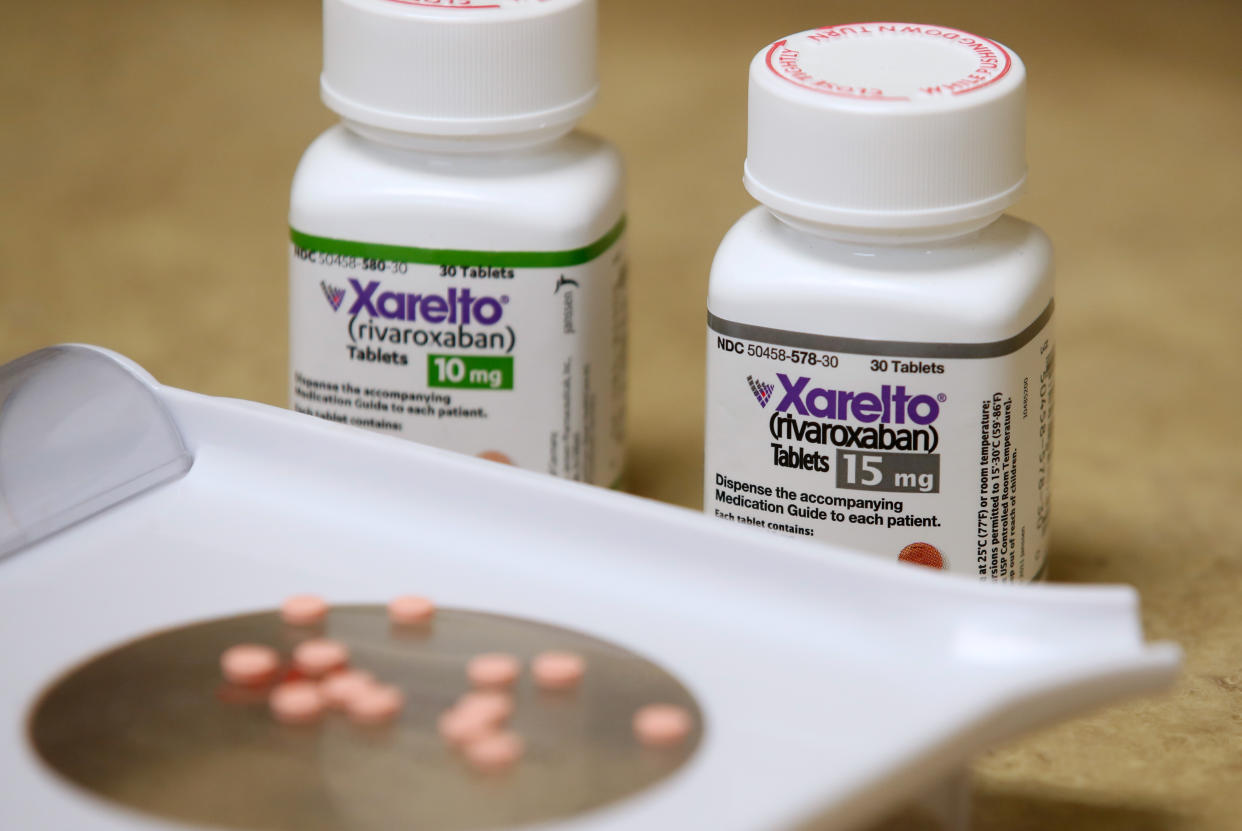Medicare drug price negotiations unlikely to be derailed by lawsuits: UBS
Lawsuits brought by big pharmaceutical companies and industry lobbying groups are unlikely to delay Medicare's drug pricing negotiations, Wall Street analysts say.
The industry is anxiously awaiting the Sept. 1 release of the first 10 drugs the Centers for Medicare and Medicaid Services (CMS) will target for new negotiated prices.
The negotiated prices are slated to go into effect in 2026, but many of the companies whose products are suspected to be on the inaugural list have already filed suit against the US Health Department, which oversees CMS, and US Health Secretary Xavier Becerra.
"We believe these strategies are unlikely to result in an intended pause/delay of IRA implementation; conversely, the Department of Justice has criticized the Chamber's request to delay the drug price negotiation process," analysts at UBS wrote in a note to clients on Monday.
Merck (MRK), Johnson & Johnson (JNJ), Bristol-Myers Squibb (BMY), and Astellas Pharma (ALPMY) are among the companies suing, along with trade groups PhRMA and the US Chamber of Commerce. AARP joined in the battle, filing an amicus brief on behalf of HHS on Friday. J&J and Bristol have asked for their lawsuits to be merged, and several have asked for summary judgement, which would avoid a drawn-out trial process.
Various lists have been published in an attempt to guess which products CMS will target.
UBS includes some common assumptions like Merck's diabetes drug Januvia, J&J and Bayer's blood thinner Xarelto, Pfizer (PFE) and Bristol's blood thinner Eliquis, J&J and AbbVie's (ABBV) cancer drug Imbruvica, and Pfizer and Astellas's Xtandi.

Some of these are listed in the lawsuits brought on by the companies who anticipate being targeted.
UBS has also included AstraZeneca's (AZN) Farxiga, Amgen's (AMGN) Enbrel, Astellas's Myrbetriq, and Boehringer Ingelheim's Spiriva, and its Jardiance with Eli Lilly (LLY).
The companies will have until Oct. 1 to sign an agreement to begin negotiations with CMS. And in UBS's view, this process actually getting underway could take some pressure off the sector.
"Although the beginning of IRA implementation is a watershed moment for the industry, we argue that the next 1-2 steps could see overhang removal for the Pharma sector in the near term," UBS said.
The lawsuits cite either the First, Fifth, or Eighth Amendments, alleging the powers granted to Medicare by Congress in the Inflation Reduction Act are unconstitutional.
"Given that IRA disallows 'administrative and judicial review' of how CMS determines negotiation-eligible drugs and maximum fair prices, lawsuits are challenging the implementation on constitutional grounds," UBS wrote.
Some legal experts see this strategy as a likely path to the Supreme Court.
UBS analysts echoed a similar sentiment, saying the lawsuits, filed in various district courts around the country, could help fast-track the suits to what they called a "business-friendly" Supreme Court.
The lawsuits citing the First Amendment claim the companies believe their freedom of speech is being taken away as they are only given a negotiation window, but not a chance to opt out of the negotiations.
The lawsuits citing the Fifth Amendment claim the lack of option qualifies as government seizure of their property, and the Eighth Amendment was cited for excessive fines — or the penalty that Medicare can levy for noncompliance.
Follow Anjalee on Twitter @AnjKhem.
Click here for the latest stock market news and in-depth analysis, including events that move stocks
Read the latest financial and business news from Yahoo Finance
